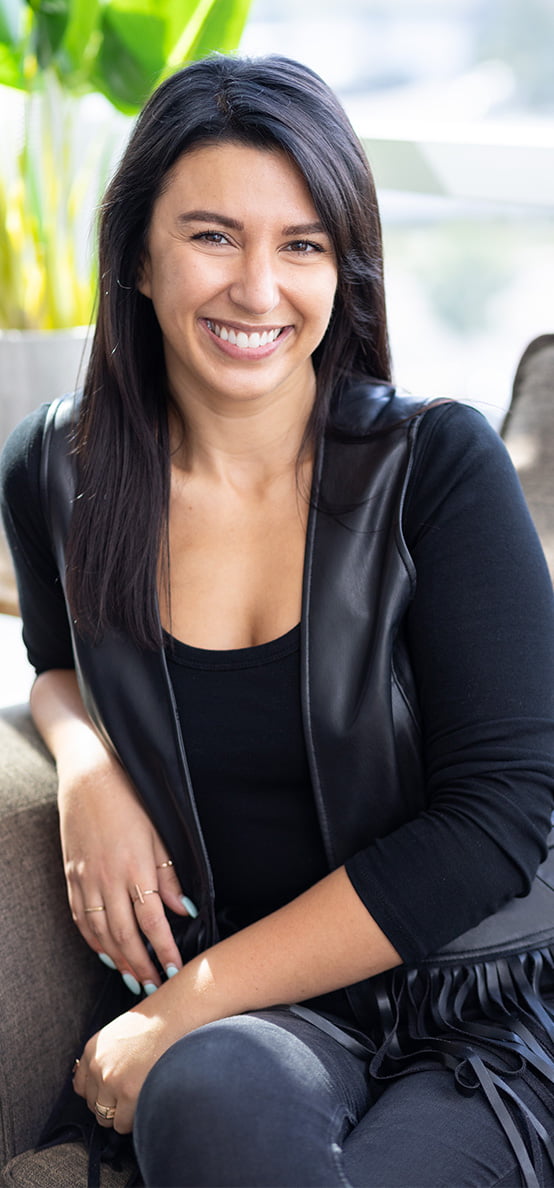Immediate Availability - Open 7 days a week - day, evening and weekend appointments
Immediate Availability - Open 7 days a week - day, evening and weekend appointments

Hi, I'm Kristina! I specialize in supporting individual and couples clients age 16+.
As a person in recovery, I have experienced a whirlwind of chaos and struggle, which significantly increased my empathy and compassion for all people. After all, there is always a reason for why people do the things that they do!
A key goal of mine in pursuing this field was to help people feel less alone, as I felt very alone for a long time. I am a human first, therapist second! I am very open and honest about who I am, as I have learned through therapy that there is nothing to hide. Shame and guilt are not welcome here! I am keen to help you embrace this mentality as well!
I have an energetic and fun personality and aim to always embrace authenticity in our sessions together. I invite authenticity and work to create an environment where you feel safe to just be YOU and make no apologies for it.
If you’re looking for a personable, energetic, and creative therapist, I’d love to connect!
I’ve heard a lot of people say that they fear judgement when pursuing therapy and worry about disapproval from the therapist. I can absolutely assure you… it is simply not in my nature to judge anyone. I can promise you a safe and welcoming space with zero judgement whatsoever and am keen to help as best as I can!
Therapy requires stepping into vulnerability and this can definitely be a challenging mental hurdle to overcome. To share your inner thoughts and experiences with another person requires trust, mutual respect and understanding. Sometimes it can be difficult to find someone you feel safe enough around to really open up and embrace blatant honesty, as this can bring up a whirlwind of emotions.
“The night is darkest just before the dawn” - Harvey Dent in The Dark Knight (yes, this is my favourite movie).
Humans are unique and what may work for one individual may not resonate with another. Through an integrative approach, I use concepts from cognitive behavioural, solution-focused, narrative, dialectical behavioural, mindfulness-based, and accelerated resolution therapies to guide my practice and help clients heal from issues that limit their ability to step into their power. I’ll walk alongside you to increase awareness of your emotions and to accept them with compassion, hold that inner critic accountable and gently introduce a more balanced view incorporating both logic and emotion, process traumatic experiences, increase the quality of their relationships and embrace real and authentic relaxation through the use of mindfulness interventions.
If you are experiencing distress due to anxiety, depression, trauma (PTS or PTSD), phobias, addictions (among others), I have training in Accelerated Resolution Therapy (ART) that can help to replace negative images and sensations with positive ones of your choosing.
Through the use of eye movements similar to eye movements that occur during dreaming or rapid eye movement (REM) sleep, ART reprograms how distressing memories and images are stored in the brain so that they no longer trigger invasive and distressing physical and emotional reactions.
Dialectical behavioural therapy (DBT) is a modality that has been very helpful for couples. DBT can help you increase your skills around effective communication and boundary setting, emotional regulation, distress tolerance, and utilizing mindfulness as a coping mechanism.
Cognitive behavioural therapy (CBT) can help couples become more aware of how their thought processes influence their behaviours. This can help to identify unhelpful patterns deriving from your cognitive processes which can lead to behaviours that can become problematic in relationships. CBT is also helpful to discover core beliefs about oneself that have developed over time as a result of life experiences. Couples have found it to be a rewarding and enlightening process to delve into how you THINK and how this has the potential to facilitate a decrease in the quality of your relationships.
I wish I had a definitive answer for this question; however, this is very much up to you. The brain is a muscle, just like any other part of the body. If you want that muscle to become stronger, it is crucial to keep working it! That means practicing the tools in between sessions and committing to your growth. The more you practice, the easier it becomes to see lasting and sustainable changes in your life!
"*" indicates required fields